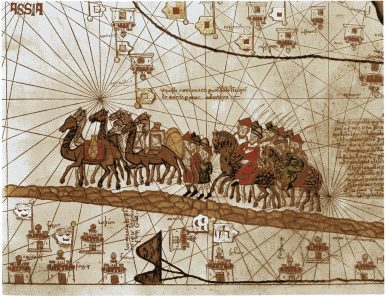BY ATMAN TRIVEDI, AMY SEARIGHT
 Asia’s premier security meeting is this week, and all eyes will be on Indian Prime Minister Narendra Modi as he gives his keynote speech — the first for an Indian leader. The defense chiefs and diplomats at the Shangri-La Dialogue are eager to see whether Modi — and India — have the chops to take on an increasingly critical regional role. Asia’s uncertain political and economic climate presents an opportunity for Modi. U.S. President Donald Trump’s policies, including the withdrawal from the Trans-Pacific Partnership trade agreement and a purely transactional approach to longtime alliances, have contributed to strategic drift in the region as China grows assertive and authoritarian. The situation calls for steady leadership — and the United States and its Pacific allies better hope that New Delhi can deliver.
Asia’s premier security meeting is this week, and all eyes will be on Indian Prime Minister Narendra Modi as he gives his keynote speech — the first for an Indian leader. The defense chiefs and diplomats at the Shangri-La Dialogue are eager to see whether Modi — and India — have the chops to take on an increasingly critical regional role. Asia’s uncertain political and economic climate presents an opportunity for Modi. U.S. President Donald Trump’s policies, including the withdrawal from the Trans-Pacific Partnership trade agreement and a purely transactional approach to longtime alliances, have contributed to strategic drift in the region as China grows assertive and authoritarian. The situation calls for steady leadership — and the United States and its Pacific allies better hope that New Delhi can deliver.



/arc-anglerfish-arc2-prod-mco.s3.amazonaws.com/public/UP5FCVRVJVCVPCNVRMHZG3AK2E.jpg)






/arc-anglerfish-arc2-prod-mco.s3.amazonaws.com/public/VAVZMOJQGVB4LJWOYE2NMX4NYY.jpg)










/arc-anglerfish-arc2-prod-mco.s3.amazonaws.com/public/3375EC2QLND5NOLUGZTOUIJMVY.jpg)